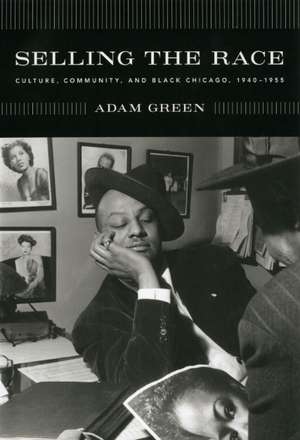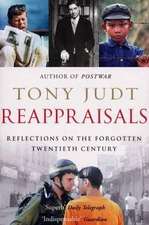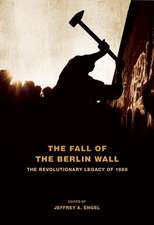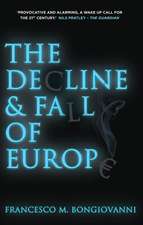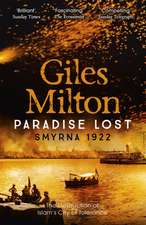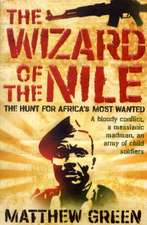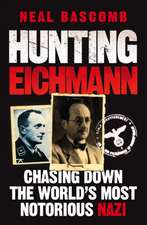Selling the Race: Culture, Community, and Black Chicago, 1940-1955: Historical Studies of Urban America
Autor Adam Greenen Limba Engleză Paperback – apr 2009
By presenting African Americans as agents, rather than casualties, of modernity, Green ultimately reenvisions urban existence in a way that will resonate with anyone interested in race, culture, or the life of cities.
Din seria Historical Studies of Urban America
-
 Preț: 214.32 lei
Preț: 214.32 lei -
 Preț: 201.35 lei
Preț: 201.35 lei -
 Preț: 185.70 lei
Preț: 185.70 lei -
 Preț: 215.22 lei
Preț: 215.22 lei -
 Preț: 196.41 lei
Preț: 196.41 lei -
 Preț: 153.89 lei
Preț: 153.89 lei -
 Preț: 185.94 lei
Preț: 185.94 lei -
 Preț: 178.45 lei
Preț: 178.45 lei -
 Preț: 132.84 lei
Preț: 132.84 lei -
 Preț: 203.12 lei
Preț: 203.12 lei -
 Preț: 224.93 lei
Preț: 224.93 lei -
 Preț: 205.71 lei
Preț: 205.71 lei -
 Preț: 200.74 lei
Preț: 200.74 lei -
 Preț: 283.69 lei
Preț: 283.69 lei -
 Preț: 246.86 lei
Preț: 246.86 lei -
 Preț: 264.85 lei
Preț: 264.85 lei -
 Preț: 233.25 lei
Preț: 233.25 lei -
 Preț: 218.74 lei
Preț: 218.74 lei -
 Preț: 325.05 lei
Preț: 325.05 lei -
 Preț: 247.23 lei
Preț: 247.23 lei -
 Preț: 246.09 lei
Preț: 246.09 lei -
 Preț: 277.90 lei
Preț: 277.90 lei -
 Preț: 273.67 lei
Preț: 273.67 lei -
 Preț: 245.49 lei
Preț: 245.49 lei -
 Preț: 275.92 lei
Preț: 275.92 lei -
 Preț: 290.90 lei
Preț: 290.90 lei -
 Preț: 266.58 lei
Preț: 266.58 lei -
 Preț: 310.30 lei
Preț: 310.30 lei -
 Preț: 227.36 lei
Preț: 227.36 lei -
 Preț: 283.30 lei
Preț: 283.30 lei -
 Preț: 192.30 lei
Preț: 192.30 lei -
 Preț: 260.82 lei
Preț: 260.82 lei -
 Preț: 263.37 lei
Preț: 263.37 lei -
 Preț: 241.19 lei
Preț: 241.19 lei -
 Preț: 273.80 lei
Preț: 273.80 lei -
 Preț: 271.67 lei
Preț: 271.67 lei -
 Preț: 247.40 lei
Preț: 247.40 lei -
 Preț: 351.69 lei
Preț: 351.69 lei -
 Preț: 267.82 lei
Preț: 267.82 lei -
 Preț: 268.17 lei
Preț: 268.17 lei -
 Preț: 287.33 lei
Preț: 287.33 lei -
 Preț: 232.27 lei
Preț: 232.27 lei
Preț: 240.63 lei
Nou
Puncte Express: 361
Preț estimativ în valută:
46.05€ • 47.57$ • 38.33£
46.05€ • 47.57$ • 38.33£
Carte tipărită la comandă
Livrare economică 25 martie-08 aprilie
Preluare comenzi: 021 569.72.76
Specificații
ISBN-13: 9780226306407
ISBN-10: 0226306402
Pagini: 328
Ilustrații: 31 halftones
Dimensiuni: 152 x 229 x 23 mm
Greutate: 0.45 kg
Editura: University of Chicago Press
Colecția University of Chicago Press
Seria Historical Studies of Urban America
ISBN-10: 0226306402
Pagini: 328
Ilustrații: 31 halftones
Dimensiuni: 152 x 229 x 23 mm
Greutate: 0.45 kg
Editura: University of Chicago Press
Colecția University of Chicago Press
Seria Historical Studies of Urban America
Notă biografică
Adam Green is associate professor of history at the University of Chicago.
Cuprins
Illustrations
Acknowledgments
Introduction: In Search of African-American Modernity
1 Imagining the Future
2 Making the Music
3 The Ends of Clientage
4 Selling the Race
5 A Moment of Simultaneity
Conclusion: An African-American Dilemma
Notes
Index
Acknowledgments
Introduction: In Search of African-American Modernity
1 Imagining the Future
2 Making the Music
3 The Ends of Clientage
4 Selling the Race
5 A Moment of Simultaneity
Conclusion: An African-American Dilemma
Notes
Index
Recenzii
“Brilliant. By looking at cultural work and the reconstitution of community in wartime and postwar black Chicago, Adam Green provides a window into the emergence of modern black urban life. Whether he’s exploring the fusion of sacred and secular blues or the writings of Chicago-school sociologists, Green beautifully demonstrates how the ‘cultural entrepreneurs’ of the period offered lessons for living, utopian dreams, a route to self-transformation, a means of survival, momentary challenges to white supremacy even as they sometimes reinforced black subordination, and the basis for a black economy.”<Robin Kelley, author of Freedom Dreams: The Black Radical Imagination>
“Selling the Race is the most important study of 1940s black Chicago to appear in sixty years. It will change ways of thinking and writing about black urban history.”<James Gregory, author of The Southern Diaspora: How the Great Migrations of Black and White Southerners Transformed America>
“As an alternative to what he sees as the ‘hard empiricism’ in humanistic and social science research, Green emphasizes ‘the city as a site of creativity, rather than constraint.’ In doing so, he makes a series of significant contributions to knowledge that will influence broad interdisciplinary audiences in African American studies, urban and labor studies, public history, and museum studies. Rich and convincing, Selling the Race will also appeal to a wide range of scholars interested in cultural policy and decision making.”<Joe William Trotter, Jr., Mellon Professor of History at Carnegie Mellon University and author of The African American Experience>
>
>
"Selling the Race is a terrific book, one that should have a long historiographical influence. . . . All social scientists and humanists will find Green's book worthy of a serious and close reading."
"Much like the race sellers and buyers in his book, Green imagines a much wider horizon of innovative ideas that shaped a national race culture."
"From slavery's origins in 1619 Virginia to the current crises of family disorganization, poverty, and violence, African Americans all too often appear as victims of U.S. society. Taking a different approach, Green (NYU) emphasizes the vibrant, positive cultural life of black Chicago in the years immediately preceding the rise of Martin Luther King Jr. and the nationally recognized Civil Rights Movement. . . . Recommended."
"An important additon to African American urban and business history."
"Green communicates forcefully the problems and possibilities posed by an era of tremendous social and poliitical change and potent forces of resistance to those changes. This technique reflects Green's broader effort to situate African Americans at the centre rather than at the margins of modernity, and, likewise, as agents in its manifestation rather than victims."
"The writing is crisp, the topics were chosen with great thought, the research is thorough, and the arguments are logical. This is a marvelous book, a must-read for everyone interested in the history of Chicago, as well as mid-century African American history."
"An intellectually rigorous, original work of scholarship that produces two important advances in African American studies. First, the book offers a thick description of mid-century Chicago-based African American cultural produciton. . . . Second, the book posits African American modernity as an emergent process of equivalence between city, or community, and nation."
